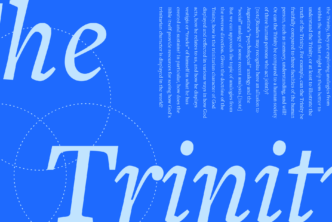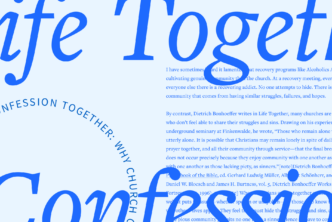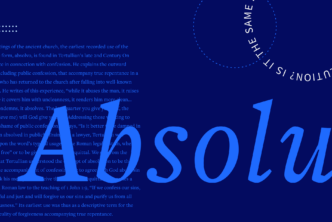In this excerpt from Walking in God’s Wisdom: The Book of Proverbs, author Benjamin T. Quinn considers how “walking in wisdom” is what brings unity, coherence, and value to even the most ordinary activities in life.
***
Our responsibility as Godfearers is to walk in wisdom’s way in every time and place—for all times and places belong to God. What could be more ordinary in life than walking? Thus, what illustration could be more fitting for applying God’s wisdom in daily life?
“Walking” appears more than 20 times in the book of Proverbs, and well over 300 times in the entire Bible. Proverbs is hardly alone in this emphasis. In Deuteronomy 10:12, Moses insists that what is most important to the Lord is to fear him, love him, and “walk in all his ways.” Psalm 1 illustrates the distinction between wisdom and folly, teaching that those who delight in the instruction of the Lord and reject the way of sinners are truly blessed. Further, Paul makes much of walking in his epistles as he insists that Christians “walk worthy” of the Lord (Col 1:10; Eph 4:1 HCSB).
Jesus as “way”
Perhaps most significant is John 14:6, where Jesus declares that he is “the way, and the truth, and the life.” By identifying as the “way,” Jesus attaches this mega-theme to himself, and ultimately grounds the reality of the “way” in himself as God in the flesh. Jesus as “way” is just as significant as Jesus as “wisdom,” for “way” identifies the proper boundaries and direction of wisdom. Walking in the way of wisdom is to live according to how God made us to live—in glad obedience to him, delighting in his law of love, keeping and cultivating his world to the praise of his glory. This direction of life promotes blessedness and flourishing for all people and signals to the world that God’s way is best.
But how does this wise approach to life relate to the brokenness, hardship, and suffering that we experience? Could all this “wise way” business be too simplistic? Does it account for the ugliness we often encounter in the world?
To “walk in wisdom” according to Proverbs
In Proverbs, “walk” is usually a metaphor describing one’s way of life:
“My child, do not walk in their way,
keep your foot from their paths.” (1:15)
“Therefore walk in the way of the good, and keep
to the paths of the just.” (2:20)
“Do not enter the path of the wicked,
and do not walk in the way of evildoers.” (4:14)
“Lay aside immaturity, and live,
and walk in the way of insight.” (9:6)
Each of these passages underscores the way of wisdom (in contrast to the way of folly) as perhaps the most dominant theme in Proverbs. Our responsibility as those who fear the Lord is to walk in wisdom’s way and forsake folly.
Problem and solution
Proverbs poses a problem. It poses many problems, in fact; but there is one problem greater than the rest that is in need of a solution. I’m not referring to authenticity concerns, doctrinal discrepancies, or interpretive issues (though Proverbs certainly contains its doctrinal and interpretive challenges); the chief problem I’m referring to is the problem of folly—the way of wickedness. One might expect the problem of Proverbs simply to be labeled “sin”—the perennial problem of the biblical drama. And this is true. But in Proverbs, the problem is far more earthy than an abstract notion of sin. Folly is personal—a way of life, part of the ornery ordinary of our creaturely existence. In the drama of Proverbs, Lady Folly plays a starring role as the adversary to the hero, Lady Wisdom. Folly and Wisdom each manifest in various forms throughout Proverbs and in other parts of Scripture. Perhaps most significant about them, though, is that they are two—for example, two trees (Gen 2; Ps 1; Prov 11), two women (Prov 7; 9), two ways (Ps 1; Prov 1).
This tells us a few things about God’s world:
1. God built choice into his world from the beginning and alerted Adam and Eve to it in the garden.
2. God built limits and boundaries into his world, as illustrated by moral boundaries made clear in the law, as well as by the boundaries between land and sea, heavens and earth.
3. Two ways of living—and only two ways—emerge from the limits and boundaries God built into his world. These two ways are most vividly illustrated in Proverbs as two women: Lady Wisdom and Lady Folly.
4. God built human responsibility into his world, and he calls people to obey him by walking in his ways.
The heart of the problem, though, is that humans are not good at walking in God’s ways. Each of us carry the disease of sin, and thus folly comes naturally. We like it; we look for it; we invent it; indeed, we are addicted to it without realizing it; and—worst of all—we cannot stop it. “Like a dog that returns to its vomit, we revert to our folly” (Prov 26:11, adapted), for in it we find comfort, familiarity, and momentary pleasure.
The only way to walk in wisom
But this folly is not just playful mischief. It is an offense to God. The solution is the beauty of the biblical drama. Jesus, the Wisdom of God, severs the cycle of human sin by outfoxing folly and breaking the very thing that broke God’s world—sin and death. The good news of Jesus’ life, death, and resurrection offers hope for foolish people. Believing in and being joined with Christ reorients one’s life to begin in humility with the fear of the Lord, then to walk forever in the way of wisdom.
Walking this path of wisdom in everyday, ordinary life is the foil to folly. Though laziness may be appealing, wisdom insists, “Go to the ant, you lazybones,” to see that hard work is best (Prov 6:6). While one may find a neighbor’s wife attractive, wisdom asks, “Why should you be intoxicated . . . by another woman and embrace the bosom of an adulteress?” (5:20). Instead, “Let your fountain be blessed, and rejoice in the wife of your youth” (5:18).
The gospel of Jesus heals human beings from the inside out, compelling us toward wisdom, our new and true addiction. Walking this way promotes the wisdom of God as the clue to life in God’s world, the solution to sin and folly, and the way of life everlasting.
***
This excerpt about what it means to walk in wisdom is adapted from Walking in God’s Wisdom: The Book of Proverbs, part of the Transformative Word Series, available from Lexham Press.1
Related articles
- Spiritual Formation: 14 Verses on God’s Intention for Spiritual Growth
- Wisdom for Correcting Modern-Day Scoffers
- 9 Commentaries on Wisdom Literature & Why It Matters
Related resources
- Spiritual Leadership, Spiritual Discipleship, Spiritual Maturity (Set of 3 Sanders books)
- Discipleship and Spiritual Formation Cornerstone Certificate Program
- Baker Academic and Brazos Press Ethics and Spiritual Formation Collection (37 vols.)
- Quinn, Benjamin T. 2021. Walking in God’s Wisdom: The Book of Proverbs. Edited by Craig G. Bartholomew and David J. H. Beldman. Transformative Word. Bellingham, WA: Lexham Press.







